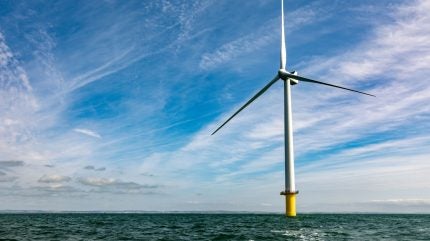
Germany’s Economy Ministry has unveiled plans to diversify the sourcing of essential components primarily used in offshore wind turbines by 2035, aiming to decrease reliance on China, reported Reuters.
This initiative forms a component of the government’s wider “de-risking” strategy in response to geopolitical tensions with China.

Discover B2B Marketing That Performs
Combine business intelligence and editorial excellence to reach engaged professionals across 36 leading media platforms.
Additionally, the energy crisis triggered by Russia’s war in Ukraine has underscored the risks associated with excessive dependence on a single country for essential supplies.
Offshore wind generation plants require strong permanent magnets made from rare earth elements to enhance output and minimise maintenance.
However, the limited availability of these materials poses supply risks, as outlined in the ministry’s press release.
The ministry said: “Permanent magnets nearly all come from China, which also applies to the rare earths from which they are produced. We want to systematically reduce critical dependencies, for example on rare earths, from individual third countries.”

US Tariffs are shifting - will you react or anticipate?
Don’t let policy changes catch you off guard. Stay proactive with real-time data and expert analysis.
By GlobalDataGermany has set a target to triple its offshore wind capacity from current levels to 30GW by 2030.
Offshore wind currently contributes only 5% of the country’s power demand, and increasing this capacity is crucial to cutting carbon emissions from fossil fuel-based electricity generation.
According to the ministry, China dominates the market with a staggering 90% share of permanent magnets supply across various industries including electric vehicles and military applications.
To combat this monopoly, Germany developed its road map through collaboration with domestic and European partners within the wind industry.
Germany is proposing the establishment of new procurement channels that would enable the country to source 30% of the necessary permanent magnets from alternative sources by 2030, and 50% by 2035.
In its newly published road map, the ministry outlined potential alternative sourcing options, with Australia and Japan key targets for future partnerships.
These efforts will be supported through investment guarantees linked to long-term delivery contracts and forging new partnerships with countries such as Australia and Japan.
In April 2025, Vestas finalised an order to provide 68 V236-15MW turbines for Vattenfall’s Nordlicht 1 offshore wind project in Germany.
This agreement includes the supply, installation and commissioning of the turbines.





